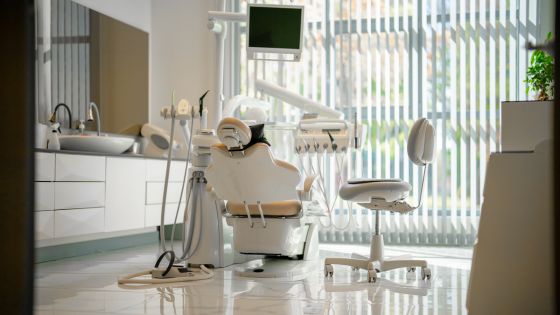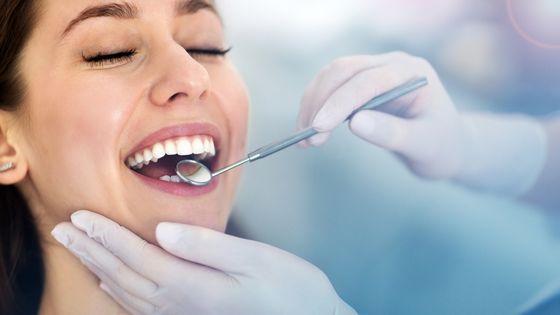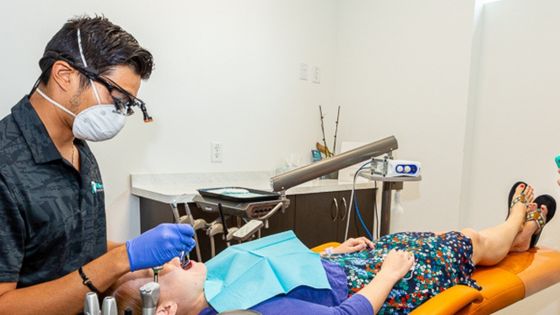The Importance of Regular Dental Check-Ups
Why You Should Never Skip Your Routine Dental Exams
Maintaining good oral health is essential for your overall well-being, and regular dental check-ups are one of the most effective ways to ensure that your teeth and gums stay healthy. At 4th Street Family Dentistry, we believe that proactive dental care, including routine exams and cleanings, plays a crucial role in preventing dental problems and improving long-term oral health. We’ll explore the key reasons why regular dental check-ups are vital for your oral health, and why choosing the best dentist in St. Petersburg, FL, is essential for a positive experience.
Early Detection of Dental Issues
One of the most significant benefits of regular dental check-ups is the early detection of dental problems. Many oral health issues, such as cavities, gum disease, and even oral cancer, can develop without causing noticeable symptoms in the early stages. Regular visits to your dentist allow them to spot these issues before they become serious, saving you from painful procedures and costly treatments in the future.
For example, a small cavity detected early can be treated with a simple filling, whereas a cavity left unchecked may require a root canal or even extraction. Similarly, gum disease can often go unnoticed, but when caught early, it can be treated effectively with professional cleanings and guidance on proper at-home care.
Prevention of Tooth Decay and Gum Disease
Preventing tooth decay and gum disease is another crucial reason to schedule regular dental check-ups. Routine visits allow your dentist to thoroughly clean your teeth and remove plaque and tartar build-up that brushing and flossing at home may miss. This cleaning is essential for preventing gum disease, which can lead to tooth loss if not treated promptly.
Your dentist will also provide personalized advice on improving your oral hygiene routine. They may recommend specific brushing techniques, the best type of toothbrush for your needs, or the most effective flossing methods. With their guidance, you can improve your oral care habits and reduce the risk of developing cavities or gum disease.
Oral Cancer Screenings
Oral cancer is a serious health condition that can be life-threatening if not caught early. During your regular dental check-up, your dentist will perform an oral cancer screening, checking for unusual lumps, bumps, or lesions in the mouth, throat, or neck. Early detection of oral cancer greatly improves the chances of successful treatment.
Regular dental check-ups provide an opportunity to catch any signs of oral cancer early, potentially saving your life. If your dentist notices any abnormalities, they will refer you for further evaluation or biopsies to ensure prompt treatment.
Monitoring Overall Health
Your oral health is directly linked to your overall health, and regular dental check-ups help monitor both. Your dentist can spot signs of underlying health conditions, such as diabetes, vitamin deficiencies, or even heart disease, by observing changes in your mouth. For instance, gum disease has been linked to an increased risk of heart disease, stroke, and diabetes complications.
A dentist can also monitor the effects of conditions such as high blood pressure or medication side effects, advising you on how they may impact your oral health. By scheduling regular check-ups, you ensure that your dental team works in partnership with your healthcare providers to help maintain both your oral and overall health.
Saving Time and Money in the Long Run
Regular dental check-ups help prevent major dental problems from developing, ultimately saving you both time and money. By catching issues early, your dentist can treat them with less invasive and less expensive procedures. A dental problem that is left untreated may become more severe, requiring complex procedures that take longer, cost more, and involve more recovery time.
For example, a small cavity treated with a simple filling may cost significantly less than a root canal or crown. Similarly, treating gum disease early with a deep cleaning and regular maintenance visits may help you avoid the need for more extensive periodontal treatments.
Maintaining a Beautiful Smile
Routine dental check-ups are also essential for maintaining a beautiful smile. Regular visits to the dentist help keep your teeth bright, clean, and free of stains or discoloration. Professional cleanings remove built-up plaque and tartar that can lead to yellowing or staining. Additionally, regular check-ups give your dentist an opportunity to address cosmetic concerns such as chipped teeth, misalignment, or other imperfections that can affect your smile.
If you are considering smile-enhancing treatments like teeth whitening, veneers, or orthodontics, your dentist can advise you on the best options for your needs during your check-up. Having a professional evaluate the condition of your teeth and gums ensures that you’re on the right track to achieving your desired smile.
Building a Trusting Relationship with Your Dentist
Finally, regular dental check-ups help establish a trusting relationship with your dentist. This is important not only for your comfort but also for receiving the best care. When you visit the same dentist regularly, they become familiar with your medical history, concerns, and unique needs, making it easier for them to provide personalized treatment.
At 4th Street Family Dentistry, we prioritize patient relationships, ensuring that each visit is as comfortable and efficient as possible. Our team is dedicated to creating a positive experience, so you can feel confident about your dental care.
Contact Us
Regular dental check-ups are essential for maintaining your oral health and preventing serious dental issues. By scheduling routine visits with the best dentist in St. Petersburg, FL, you’re taking a proactive step towards maintaining a healthy smile and ensuring that any potential problems are detected and treated early. Don’t wait for a dental emergency—schedule your next check-up today and keep your smile bright, healthy, and beautiful for years to come!
If you’re looking for a trusted, compassionate dental team, contact us at 4th Street Family Dentistry today! We’re here to help you achieve optimal oral health with personalized care and attention to detail.










